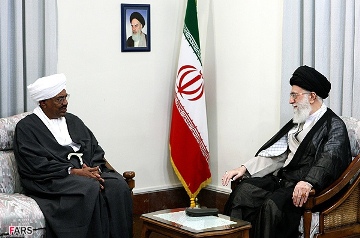Sudan defends decision to send troops to Yemen after Iranian criticism
October 26, 2015 (KHARTOUM) – Sudan’s foreign ministry has defended the government’s decision to send ground troops to Yemen, rejecting Tehran’s criticism for the countries participating in the Saudi-led campaign against the Iranian-backed Shiite Houthi militants.

On Saturday, Iranian Assistant Foreign Minister for Arab and African affairs Hussein Amir Abdullahian, criticized the deployment of Sudanese troops in Yemen saying “it won’t do any good” because the aggression has come to an end.
Abdullahian’s statements were the first comment by an Iranian official against Khartoum since the latter made a strategic shift in its relations with Tehran and ordered the closure of the Iranian Cultural Centre and asked the Iranian cultural attaché to leave the country in September 2014.
At a time when Saudi Arabia’s strongest allies including Egypt and Pakistan have declined requests by Riyadh to send ground troops to Yemen, Khartoum has recently shifted its alliances in response to growing economic pressures at home.
Sudan’s foreign minister Ibrahim Ghandour told the Turkish Anadolu Agency on Monday that deployment of Sudanese troops as part of the Saudi-led coalition in Yemen represent a “principled stand to restore the legitimacy”, saying the security of the Kingdom and the Red Sea is a “red line” for Khartoum.
He said his country’s position comes within a unified Arab stance backed by the Arab League after “we felt the danger of the situation following the takeover of the legitimate authority by militias”.
Meanwhile, the foreign ministry spokesperson Ali al-Sadiq told reporters Monday that Sudan’s decision to join “Operation Decisive Storm” in Yemen was dictated by national obligations and regional alliances, saying it has nothing to do with Sudan’s relations with any other country.
Commenting on Abdullahian’s statements, al-Sadiq described Khartoum ties with Tehran as “normal and natural”.
During the past year, Sudan former defence minister Abdel Rahim Hussein who is a close friend to president al-Bashir was the man behind the rapprochement with Tehran.
Hussein successfully circumvented several attempts by the foreign ministry to contain the string political and military cooperation between the two countries at the time.
(ST)
